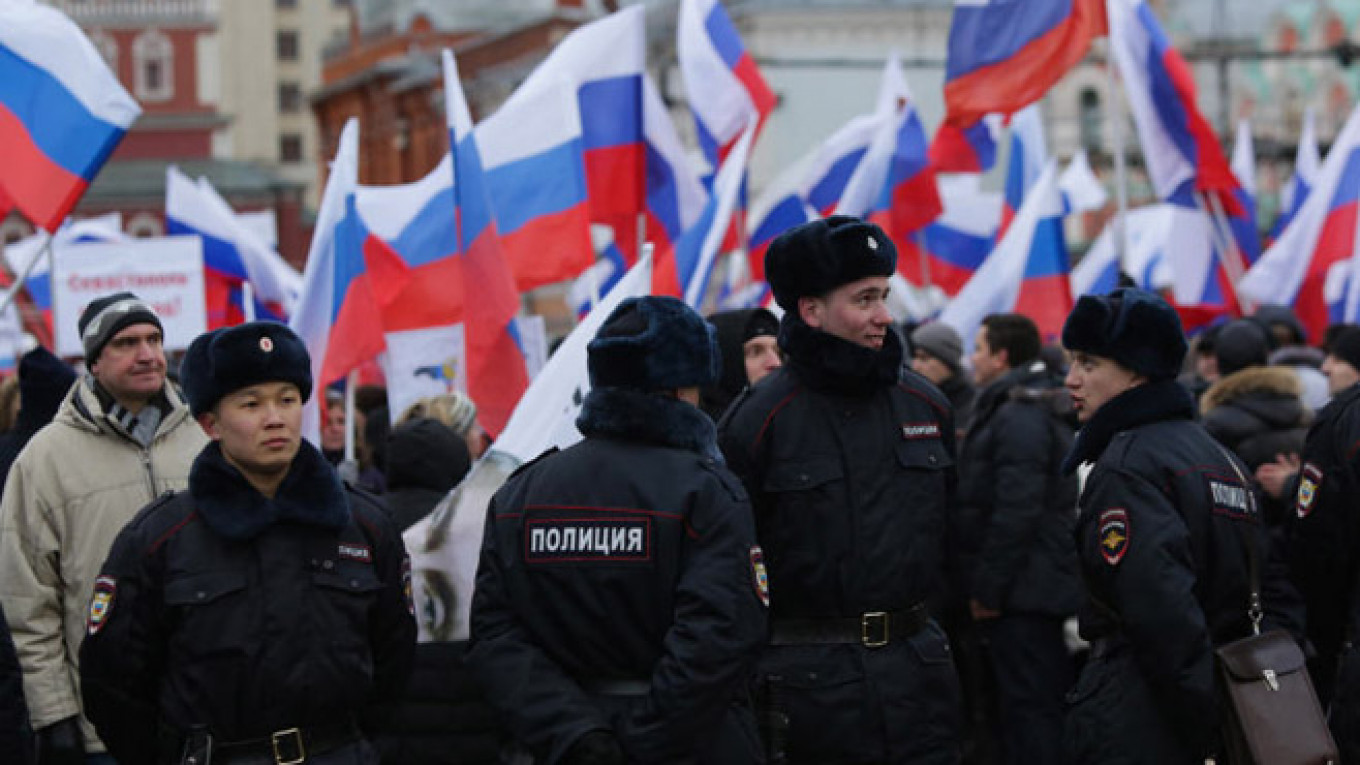Back in the Soviet era, American historian Richard Pipes wrote that the Russian people are both inherently anarchic and frightened of their own nature. They see tyranny and repression as the only alternative to Russian anarchy, or bunt — which writer Alexander Pushkin described as "absurd and cruel" in "The Captain's Daughter," a novel about a Cossack rebellion in the 18th century.
This theory goes a long way toward explaining the mysterious Russian soul: the love for strict laws and eagerness to inform the authorities when others don't obey them, combined with extreme reluctance to do so themselves.
Russian society has a low level of self-organization: "We need to put a light in the back stairs, but we can't collect the money," as bard Bulat Okudzhava described it. Thus social pressures are not relieved in peaceful actions but accumulate, finally triggering a destructive bunt. But the pressure has always been so much that the bunt usually takes the form of an individual self-destructive, often drunken rampage.
In modern history, Russia got to rebel only once — in 1917. State repression had been eased by World War I and the February revolution, and the country exploded into chaos. Various parties tried to re-establish order, but the genie was out of the bottle. Lenin's Bolsheviks won because they didn't try to put it down but joined and even led this rebellion, calling for the root-and-branch destruction of the old order.
The national bunt was followed by a hangover and Stalinist reaction. The Bolshevik rebel leaders were shot, and a true dictatorship clamped down on the Russian population with a previously unseen intensity.
In the first two decades after the collapse of the Soviet Union, Russia roughly followed the course of the Russian Empire after its 1905 defeat by Japan, when Russia embarked on a path to rapid modernization and capitalist development. In the 1990s, too, society underwent dramatic change and began to split into winners and losers, creating growing popular discontent.
Vladimir Putin sensed this discontent, which was directed against corruption, cronyism, tastes for Western luxuries, fashions and ideas among the elites and Russia's diminished international standing, all of which reached gigantic proportions on Putin's watch. But rather than risk being swept away by the brewing rebellion, Putin chose to ride the tiger. He actually led the riot, deliberately breaking international laws and behaving like an international bully.
This is why his approval ratings have rocketed. The annexation of Crimea is popular precisely because Putin annexed it while thumbing his nose at international rules and conventions. It was his punk behavior at the Group of 20 summit in Australia last week that made him a winner in the eyes of so many Russians. Russians feel free in the uniquely Russian sense, when freedom is synonymous with absence of laws. In this sense, the lawless separatist enclave of Ukraine has become an enclave of freedom for Russian volunteers.
It's certainly a bunt, but for now it is a strange postmodernist one. Russia's rogue status and disdain for international laws go hand-in-hand with enduring — and worsening — repression at home. For now, it's a riot on the couch in front of a television set and on the Internet. The question is whether Putin and his cronies will be able to harness the bunt when it inevitably abandons virtual reality and descends onto Russia's streets and highways.
Alexei Bayer, a native Muscovite, lives in New York. His detective novel "Murder at the Dacha" was published by Russian Life Books in 2013.
A Message from The Moscow Times:
Dear readers,
We are facing unprecedented challenges. Russia's Prosecutor General's Office has designated The Moscow Times as an "undesirable" organization, criminalizing our work and putting our staff at risk of prosecution. This follows our earlier unjust labeling as a "foreign agent."
These actions are direct attempts to silence independent journalism in Russia. The authorities claim our work "discredits the decisions of the Russian leadership." We see things differently: we strive to provide accurate, unbiased reporting on Russia.
We, the journalists of The Moscow Times, refuse to be silenced. But to continue our work, we need your help.
Your support, no matter how small, makes a world of difference. If you can, please support us monthly starting from just $2. It's quick to set up, and every contribution makes a significant impact.
By supporting The Moscow Times, you're defending open, independent journalism in the face of repression. Thank you for standing with us.
Remind me later.


